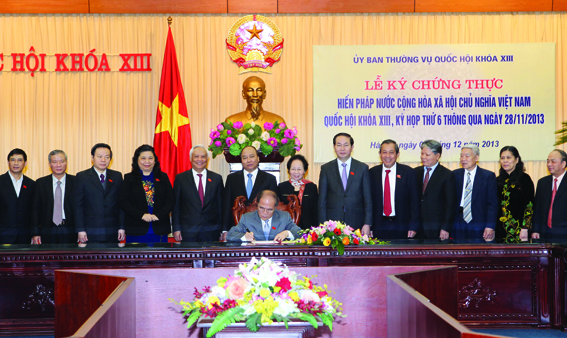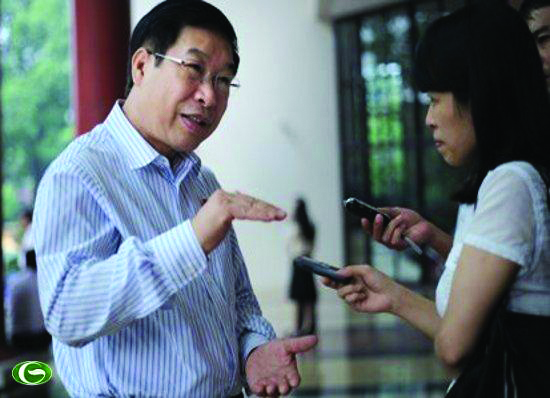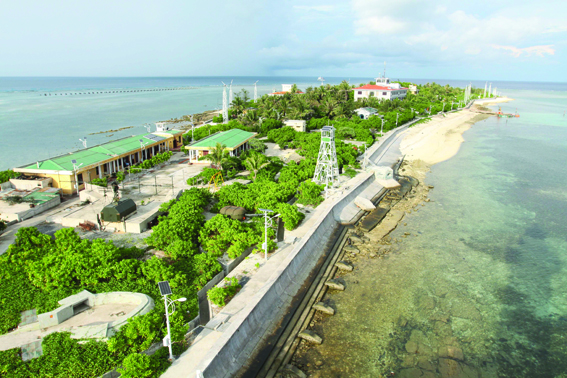With a view to improving the business environment to attract more investment capital, a resolution on reforming administrative procedures for implementation of investment projects has been drafted by the Ministry of Justice in coordination with other related agencies and the Prime Minister’s Advisory Council for Administrative Procedure Reform. Vietnam Law and Legal Forum talks with Ngo Hai Phan, director of the Ministry of Justice’s Bureau of Administrative Procedure Control, about the draft resolution.
What are the major contents of the draft resolution?
The draft resolution proposes solutions for reforming administrative procedures applicable to land-using investment projects, focusing on two groups of tasks related to administrative procedure regulations and performance.
With regard to administrative procedure regulations, the draft resolution focuses on developing and standardizing the process of performing administrative procedures for land-using investment projects from the stage of investment preparation to the stage of operation commencement. Administrative procedures will be simplified on the basis of removing all unnecessary, unreasonable, unlawful and ineffective procedures. At the same time, the one-stop-shop mechanism would be applied at the stages of implementation involving different state management agencies but serving the same management purpose.

Binh Duong chairman Le Thanh Cung hands investment license to Japan’s Maruzen Foods director general__Photo: Quach Lam/VNA
For example, for the allocation or lease of land not through land auction or bidding to a land-using project, the draft resolution proposes integrating the current procedures of recommending sites for the project, approving the investment, providing planning information, appraising the grant of an investment certificate and approving planning tasks into a single investment approval procedure. The investor would be required to submit only one dossier to a state agency in charge of investment approval and then wait for the reply from such agency. It is the responsibility of related state management agencies to coordinate with one another in completing administrative procedures according to the set deadlines and assigned tasks.
As for performance of administrative procedures, the draft paper suggests a series of solutions focusing on the publicity and transparency of the receipt and settlement of administrative procedures for investors and the accountability of state agencies in this work. These solutions include improving the effectiveness of publicization of administrative procedures, applying information technology, making public the results of settlement of administrative procedures and receipt and processing of reports and suggestions on administrative regulations, and increasing inspection, examination and supervision of implementation.
The performance of the tasks set in the draft resolution creates a need for revision of many legal documents, including three laws, 11 government decrees, one prime minister decision and 10 circulars. The draft, therefore, assigns specific tasks, especially those related to the revision of legal documents establishing administrative procedures as well as improvement of the effectiveness of performing administrative procedures, to each ministry, sector and locality.
At present, reforming administrative procedures for land-using investment projects is a matter of great concern to many organizations and individuals. How does the draft resolution deal with this issue?
It’s true that administrative procedures for land-using investment projects are drawing great interest from the public because the number of these projects is great and they account for a high percentage of the whole society’s investment capital compared to other projects. According to the Ministry of Planning and Investment’s statistics during 1999-2010, construction investment capital, which was spent mostly on land-using investment projects, accounted for 72 percent of the whole society’s investment capital.
Under current regulations, the implementation of a land-using investment project must go through different stages involving numerous administrative procedures. However, it is very difficult to access and implement these procedures as current laws fail to establish a complete and uniform process for implementation from the time of investment preparation to the time of project operation to ensure publicity and transparency. In addition, it often takes a very long time for investors to complete all administrative procedures required for putting their land-using projects into operation, even more than five months for simple projects in the most favorable cases. This situation poses risks and increases investment costs, making investment efficiency unpredictable.
Furthermore, many procedures are overlapping and duplicate, leading to the emergence of many “sub-procedures” which complicate and prolong the process of implementing land-using investment projects.
To deal with these problems, the draft resolution focuses on increasing accessibility and reducing to the most the time and unnecessary and unreasonable expenses for investors in the process of performing administrative procedures. Under the draft, the number of administrative procedures required for the most complicated project which must go through a complete process would be reduced to 12 from the current 33. The average time required to complete administrative procedures would decrease from 158-865 working days as at present to 80-385 working days, thus helping investors save some VND 1.2 billion a year. The draft also proposes measures to enhance the ability of investors to supervise the performance of administrative procedures, increase the effectiveness of state management and improve the investment environment so as to further attract investment capital.
In 2013, the Prime Minister’s Advisory Council for Administrative Procedure Reform received a lot of feedbacks from professional associations and the private sector on administrative procedure regulations and performance. How these feedbacks have been accepted and expressed in the draft resolution?
It must be affirmed that the administrative reform solutions introduced in the draft resolution have been jointly studied and developed by many ministries, sectors, localities, and the Advisory Council for Administrative Procedure Reform. Particularly, we have coordinated with the Advisory Council in consulting the stakeholders in different forms, such as holding meetings, sending written questions and collecting opinions through associations of local and foreign businesses in the country. Most collected opinions focus on reflecting difficulties and problems facing investors, while some propose initiatives for reforming the process of performing administrative procedures for land-using projects, or solutions to avoiding overlap and duplication in the verification and grant of investment certificates as well as settling difficulties arising in the course of approving planning tasks.
These valuable opinions have been carefully studied during the process of finalizing the resolution, aiming to remove difficulties and create the most favorable conditions for investors to implement land-using projects, thus encouraging the flow of investment capital in the society.-


